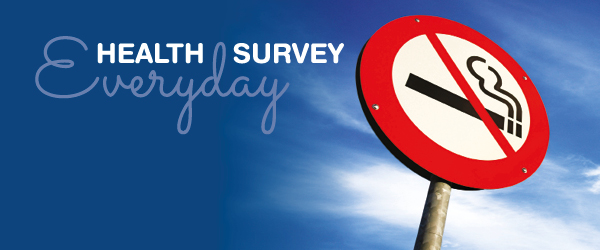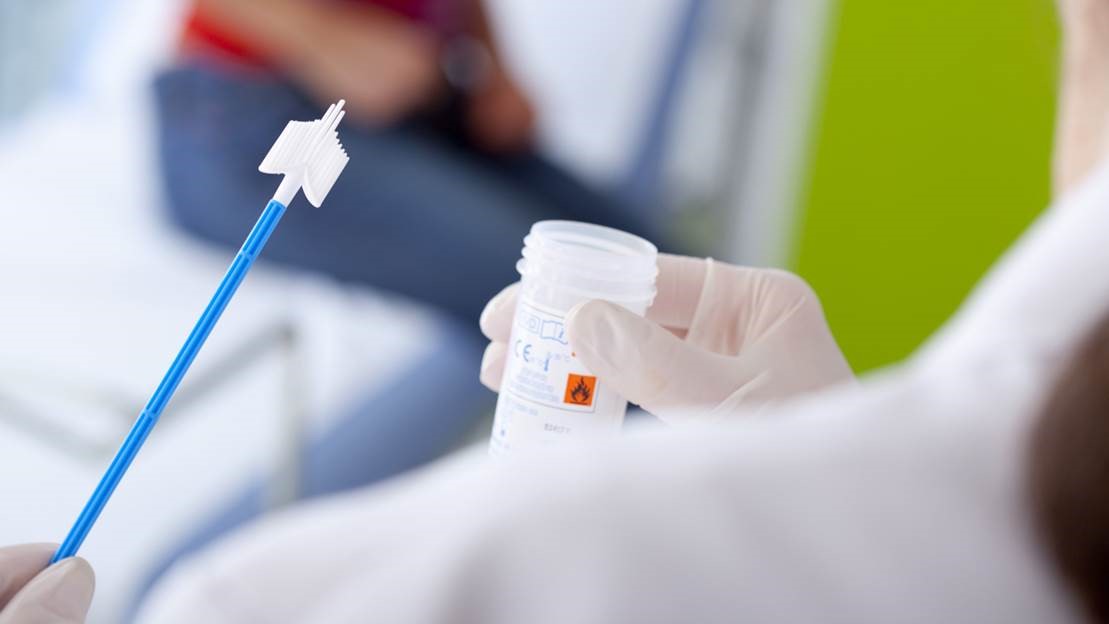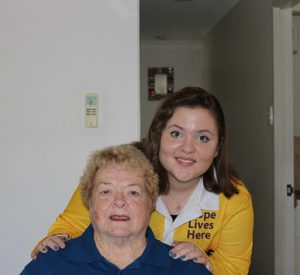On this page you will find information on:
Help us make the next cancer breakthrough
Cancer Council needs Australians who have never been diagnosed with cancer to take part in our Australian Breakthrough Cancer Study.
By recruiting one of the largest Australian research groups ever, the study aims to understand how genes and lifestyle impact our risk of cancer and help scientists uncover new risk factors for cancer and other diseases.
Men and women (aged between 40-74 years) who have never had cancer are invited to take part in the study, set to be conducted throughout 2017.
It’s easy to get involved. Sign up, complete the online questionnaire, and provide a saliva sample via the free kit sent in the post.
Not eligible for the study?
Help us by spreading the word! We need more Australians to sign up and be part of this vital project
Everyday Health Survey results – Community views on Tobacco

Thank you to everyone who took part in the Everyday Health Survey on tobacco which explored community knowledge, attitudes and support for current and proposed tobacco control measures in Queensland.
Queensland is uniquely placed to be a global leader in tobacco control, having recently introduced the most progressive smoke free laws in the world. Despite this, tobacco smoking remains a leading cause of preventable death and disease in Queensland and is a significant contributor to health inequalities. With two in three smokers dying as a result of their habit, it is vital that we continue our efforts to eliminate smoking for future generations.
The survey’s results emphasised the significant level of community support for ongoing action to expand smoke free policies, to better protect all Queenslanders from the harmful impacts of smoking.
Respondents revealed overwhelming support for existing tobacco control laws in Queensland (88%) and significant support for a range of possible new tobacco control measures (54% to 85%).
Among the most popular of these possible measures were:
- Increasing the legal age to sell tobacco (85% support)
- Banning smoking in the presence of children (84% support)
- Requiring tobacco retailers to hold a license (84% support)
- Banning tobacco vending machines (82% support)
- Funding for more intensive quit support for people from disadvantaged backgrounds (76% support)
To view the full report please click here.
Bundaberg office relocation

Cancer Council Queensland’s new Bundaberg office is now open!
The new hub features a purpose-built room for our ESA Wig and Turban Service and a bookable room for support groups.
The office’s relocation to the CBD will provide us with the opportunity to grow our retail presence and profile in the community, with an increased offering of Cancer Council retail products planned for the future.
The new office is located at 41 Woongarra Street, Bundaberg Central.
We hope all our Bundaberg volunteers are enjoying the new space!
For more information about the move, phone Cancer Council Queensland’s Bundaberg Office on (07) 4150 4500 or email bundaberg@cancerqld.org.au.
New cervical screening program will save lives
 Cancer Council Queensland has backed the new cervical screening program to be launched nationally later this year, replacing the two-yearly pap smear test.
Cancer Council Queensland has backed the new cervical screening program to be launched nationally later this year, replacing the two-yearly pap smear test.
Only about half of all eligible women in Queensland currently get regular pap smears – the second lowest rate in the country, national figures show.
The two yearly pap test for women aged 18 to 69 will change to a five yearly human papillomavirus (HPV) test for women aged 25 to 74.
The new test will detect HPV before abnormal cell changes occur, helping to prevent cases of cervical cancer and increasing survival rates. The test will be more effective than a pap smear, just as safe, and will hopefully improve uptake rates.
Cancer Council Queensland urges all eligible women to continue participating in the current pap smear screening program until the new test becomes available.
Around 200 women in Queensland are diagnosed with cervical cancer each year and about 60 die from the disease. We are hopeful the new test will help reduce these numbers.
For more information please visit the Cancer Screening website.
Three generations support Cancer Council Queensland

We are privileged at Cancer Council Queensland to have so many volunteers, but to have three generations from one family is special.
This is what Adelaide, Shelley and Brooke say about why they became involved with Cancer Council Queensland and their experiences.
1. What is your role with Cancer Council Queensland? What does it involve?
Brooke: My role at the moment is being part of the Rockhampton Relay For Life organising committee. Over the years (2015-17) within the committee I having undertaken the role of team development which includes recruiting and retaining new teams and Christmas wrap which involves organising and rostering.
Shelley: I am an employee with Cancer Council Queensland having recently moved to Brisbane where I work on reception. Previously I was in Rockhampton where I did admin and looked after the Lodge.
Adelaide: I am a Branch Member involved in fundraising. In the past, because of my computer experience with I was involved in creating contact lists, mail distribution, Relay For Life data inputting and general clerical duties.
2. How long have you been involved with Cancer Council Queensland?
Brooke: Since 2008.
Shelley: Over 7 years as an employee and previously I did some voluntary work.
Adelaide: I have been volunteering with Cancer Council Queensland for 15 years, once I retired from full-time work.
3. Why did you decide to get involved with Cancer Council Queensland? What was your motivation for volunteering?
Brooke: My family was already heavily involved and through their involvement I was able to see some of the great work and services that Cancer Council Queensland offers in the community.
Shelley: My Dad was diagnosed with cancer and Cancer Council Queensland assisted him. He later decided to give back, as did his family.
Adelaide: My husband Dale passed away from prostate cancer, after experiencing the support of Cancer Council Queensland volunteers on our first trip for his treatment, we both decided we would volunteer on retirement.
4.What do you love most about being volunteering for Cancer Council Queensland ?
Brooke: My favourite part would be meeting people at Relay because we are all there for the same reason but in an upbeat environment.
Shelley: The wonderful people – volunteers, community, work colleagues
Adelaide: I love the camaraderie enjoyed with staff and other volunteers and the satisfaction of giving rather than receiving.
5.What has surprised you in your role?
Brooke: That younger people are not aware of what Cancer Council Queensland can offer and the opportunities to get involved. They also do not realise that Relay For Life is not just about running.
Shelley: The generosity of people in the community.
Adelaide: I am surprised by the reasons why people from all walks of life become volunteers, as not everyone has had an experience of cancer in the family.
6.What has been the most inspiring or memorable moment you’ve had since starting with Cancer Council Queensland?
Shelley: I’m inspired every day by the courage shown by cancer survivors. My most memorable moments would be with the Lodge in Rockhampton and dealing with the patients – they were always appreciative of the services we provided.
Adelaide: My late husband, Dale was the volunteer organiser for the first RFL in Rockhampton and he did it for a few years until his own health prevented him being involved. In fact, I had to take over the role one year when he was too sick to do the task. To see all those people under Dale’s direction working for a cancer free future was spectacular.
7.What is your hope for the future? What do you hope your volunteering will achieve for cancer and Cancer Council Queensland?
Brooke: I hope that I can keep volunteering in the future and offer support where it is needed.
Shelley: I hope we will continue to find better ways to treat cancer and eventually wipe it out. By volunteering and working for Cancer Council Queensland I can make people’s journey a little easier
Adelaide: My achievements in the future will be very limited as I suffered a stroke in the latter half of 2016 and mobility is limited. However, I am still able to create a variety of cards. Proceeds from these cards will be donated to Rockhampton Branch which will help towards fund-raising functions. Packs of these cards will be donated as multi-draw prizes as has been done in the past.
8.What would you say to other young people thinking about volunteering with Cancer Council Queensland?
Brooke: Just give it a go, do it with your friends it will make the experience a lot easier if have others to support you.
Shelley: Do it, it’s very rewarding.
Adelaide: I would definitely encourage them to apply to be involved in whatever area interests them.
9.What does it mean to you to share your Cancer Council Queensland experience with your Mother and Grandmother?
Brooke: It was very important to me when I was younger to spend time getting collection boxes and counting the money with my Grandma and Poppy; but now I feel like we’ve all moved into areas of volunteering that suit us better.
Shelley: It means a lot. We have a common goal in trying to contribute to the eradication of cancer.
Adelaide: It means we have another familiar aspect to share and we all have the same motivation as our husband, father and Poppy.
10. What have you gained from volunteering?
Brooke: I feel like I’ve gained a better understanding of the kindness and drive some people have to help others.
Shelley: A sense of contributing to the community and to the fight against cancer.
Adelaide: have made many life-long true friendships.
Adelaide: I would like it mentioned that my younger daughter, Trudy although not a volunteer has also been involved in fundraising for cancer in various centres around Australia including Head Shave when in Emerald and ABMT for a few years in Mount Isa.
